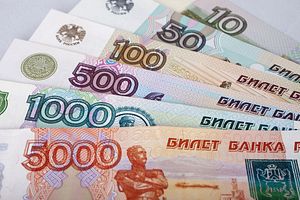Russia’s Ministry for the Development of the Russian Far East announced on January 14 that Russian businesses doing trade with North Korea can make payment in rubles through North Korea’s Foreign Trade Bank. It was the first time that the Russian government acknowledged the usage of rubles between two countries through the North Korean bank.
The ministry said in October last year that Russia was seeking to expand economic exchanges with North Korea, and one of the efforts was to increase the use of the ruble between two countries. At the time, the ministry said that a channel for the use by the North Korean bank had been prepared in Russia for future use.
As the state-owned Voice of Russia also reported in April last year, Pyongyang and Moscow agreed to use rubles for future payment of trade between the two countries, which is expected to be worth $1 billion by 2020.
North Korea has been putting a lot of effort into enhancing ties with Russia recently, as its long-time ally China has kept a distance from it. However, recent examples have shown that Moscow is as eager as North Korea to improve mutual relations.
As a recent example, Yonhap News reports that Russian President Vladimir Putin might visit North Korean leader Kim Jong-un in Pyongyang to celebrate the 70th anniversary of the liberation of North Korea in August. Putin has also invited Kim to attend Russian celebrations marking the 70th anniversary of the end of World War II.
“It is a good time for Russia to enhance ties with North Korea as Sino-North Korea relations have been strained,” Ahn Chan-il, the president of the World Institution for North Korea Studies, told The Diplomat.
Ahn explained that North Korea is important for Russia as Putin is seeking economic benefits. In particular, Putin wants to establish a bridgehead for expanding economic cooperation with South Korea and Japan through the construction of the Eurasia Rail and Trans-Korean Railway, which will connect North and South Korea to Russia.
“There is no reason for Russia to turn down North Korea’s appeasement gesture at the moment,” Ahn added.
Meanwhile, the Russian government’s announcement is expected to cause uneasiness for the United States and its allies as North Korea’s Foreign Trade Bank was put on the U.S. sanction list in 2013. Sanctions were imposed on FTB in order to impede North Korea’s ballistic missile and weapons of mass destruction programs.
“North Korea uses FTB to facilitate transactions on behalf of actors linked to its proliferation network, which is under increasing pressure from recent international sanctions. The United States will take strong measures to protect its financial system from this type of illicit activity, and we urge financial institutions around the world to be particularly wary of the risks of doing business with FTB,” said Under Secretary for Terrorism and Financial Intelligence David S. Cohen in a Treasury Department statement.
Later that year, Bank of China joined the sanctions by announcing that it will stop any business with FTB. The South Korean government said the decision by the Chinese bank would place a huge burden on North Korea, given Pyongyang’s dependence on China.
Meanwhile, North Korea announced on January 16 that it is committed to implementing “international standards” for anti-money laundering and combating the financing of terrorism. The announcement, carried by Korean Central News Agency, was made two weeks after the U.S. decided to impose more sanction on North Korea in response to a cyber attack on Sony Pictures.
Bruce Klingner of The Heritage Foundation told Radio Free Asia that the announcement was Pyongyang’s effort to deflect attention on sanctions that aim to curtail North Korea’s illegal acts. North Korea wants to avoid damages from financial sanctions, Klingner explained.
Closer cooperation with Russia might be the key to achieving that goal.

































